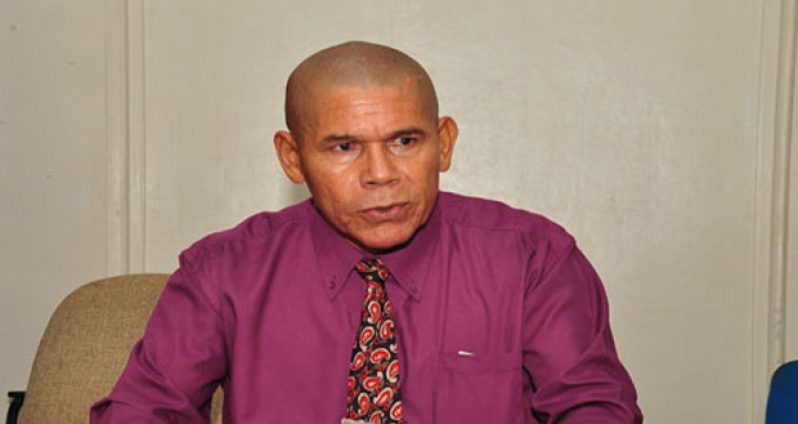THE HEAD of the Academisch Ziekenhuis Paramaribo Lab has confirmed several cases of the Zika virus exist in neighbouring Suriname, and he believes that thousands in the country may have been infected with the mosquito-borne viral illness.According to a Caribbean News Now report, John Codrington bases his estimate on the hundreds of testing applications the lab has received. Some of those who have tested positive include pregnant women.

Based on what is happening in Brazil with the surge in microcephaly cases seen this year, the Bureau of Public Health Care is advising women to delay pregnancy as a precautionary measure in the short term.
Surinamese health officials have announced an action plan that focuses on fighting the mosquito that transmits the Zika virus, and on educating the community, Caribbean News Now has said. Puerto Rico yesterday confirmed its first case of the mosquito-borne virus, which has been spreading across South America and the Caribbean, and has been linked by Brazilian authorities to a serious birth defect.
US Congressman Pedro Pierluisi said in a statement that his office had been in touch with the US Centres for Disease Control and Prevention, which had confirmed the single case of Zika on the island, Reuters reported
“There is no reason for alarm, and the public should continue to take common sense steps to avoid mosquito bites, like using repellent and wearing long pants and shirts,” Pierluisi said.
TRAVEL WARNING
The US Centres for Disease Control and Prevention (CDC) have issued a travel warning following the first reported case of Zika virus in Puerto Rico.
The outbreak of the mosquito-borne virus began in Brazil last May, followed by outbreaks in several Central and South American countries, according to the CDC warning.
The CDC consequently advises tourists headed to Zika-detected areas in South America, Central America, the Caribbean or Mexico to protect themselves from mosquito bites, according to a TravelPulse report.
No vaccine or medicine exists to prevent Zika virus infection, the CDC says, and advises those seeing a doctor or nurse: if “you develop a fever with a rash, joint pain, or red eyes”.
The Zika virus was linked to microcephaly by Brazil’s Ministry of Health, per the CDC warning.
According to CNN, microcephaly is “a neurological disorder that can result in incomplete brain development in newborns”. The news network said babies with the disorder are “born with abnormally small heads that cause often serious developmental issues and sometimes early death”.
Brazil’s 2015 Zika breakout coincided with more than 2,400 suspected microcephaly cases in 20 states, versus just 147 cases in 2014, CNN has said. Doctors found that most mothers of affected infants had Zika-like symptoms early in the pregnancy, the news network added.
Since the first local case of Zika virus was detected in Brazil last May, health officials estimate that between 440,000 and 1.3 million people there have caught it, Caribbean360 reports.
RAPID SPREAD
The disease was first identified in the Americas less than two years ago, and has spread rapidly across South and Central America.
Zika was first detected in humans about 40 years ago in Uganda. Brazilian authorities in November linked Zika to a surge in babies born with microcephaly, a birth defect that seriously limits a child’s mental and physical abilities.
Between three and 12 days after being bitten by a mosquito carrying the virus, three out of four people come down with symptoms, which include mild fever, rash, conjunctivitis, headaches and joint pain.
In addition to Brazil, Suriname and Puerto Rico, other countries in the Americas report confirmed cases of Zika, including Chile, Colombia, Panama, El Salvador, Guatemala, Mexico, Paraguay and Venezuela, Caribbean360 said.
Here in Guyana, Public Health Minister Dr George Norton has said the virus is a matter of concern. In a recent interview with the Guyana Chronicle, he expressed concern that the virus could result in the development of micro-encephalitis.
“It is important for pregnant mothers to protect themselves from mosquitoes that spread the Zika virus,” Minister Norton said.
In its quest to help pregnant women protect themselves from being bitten by the Aedes aegypti mosquitoes, the Public Health Ministry has commenced distribution of insecticide-treated bed nets along Guyana’s Coastal Plain.
According to Dr Norton, the Public Health Ministry has recently taken a decision to distribute the insecticide-treated bed nets at health centres across Guyana. “So when pregnant women attend their regular clinics, they will be given the treated mosquito nets so they can use within their homes,” the Public Health Minister explained.
Additionally, the Public Health Ministry will spearhead fumigation, commonly known as fogging, in and around Georgetown. Fumigation is a method of pest control that completely fills an area with gaseous pesticides — or fumigants — to suffocate or poison the pests within the area.




.png)









